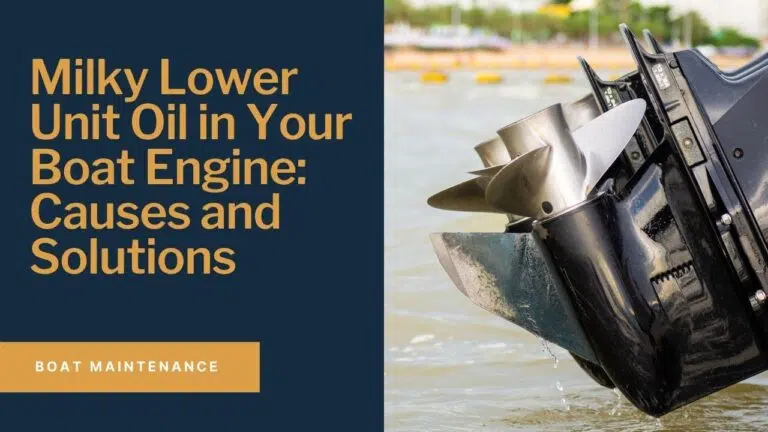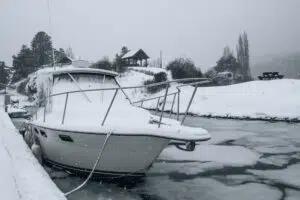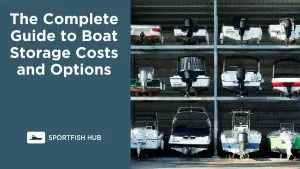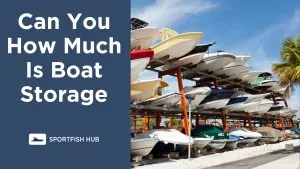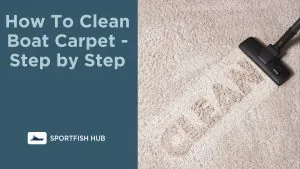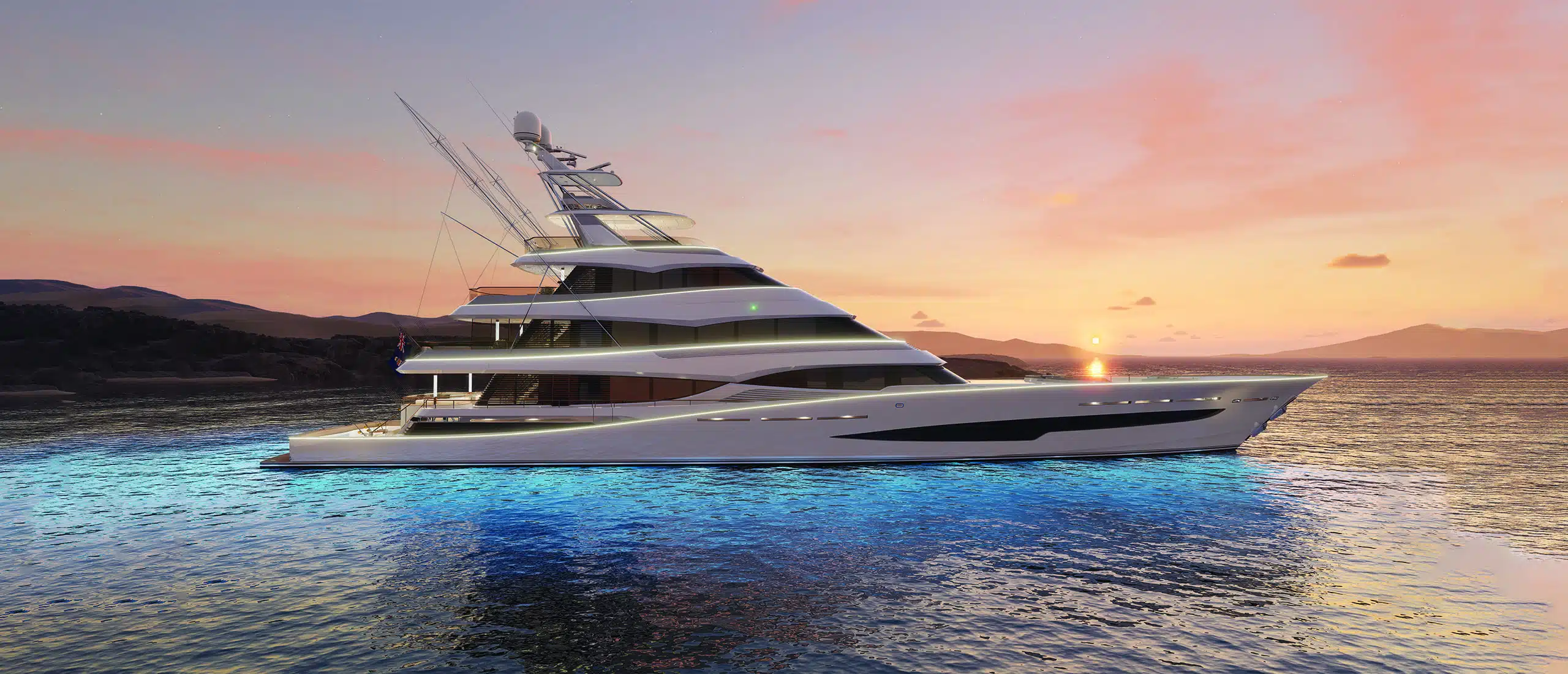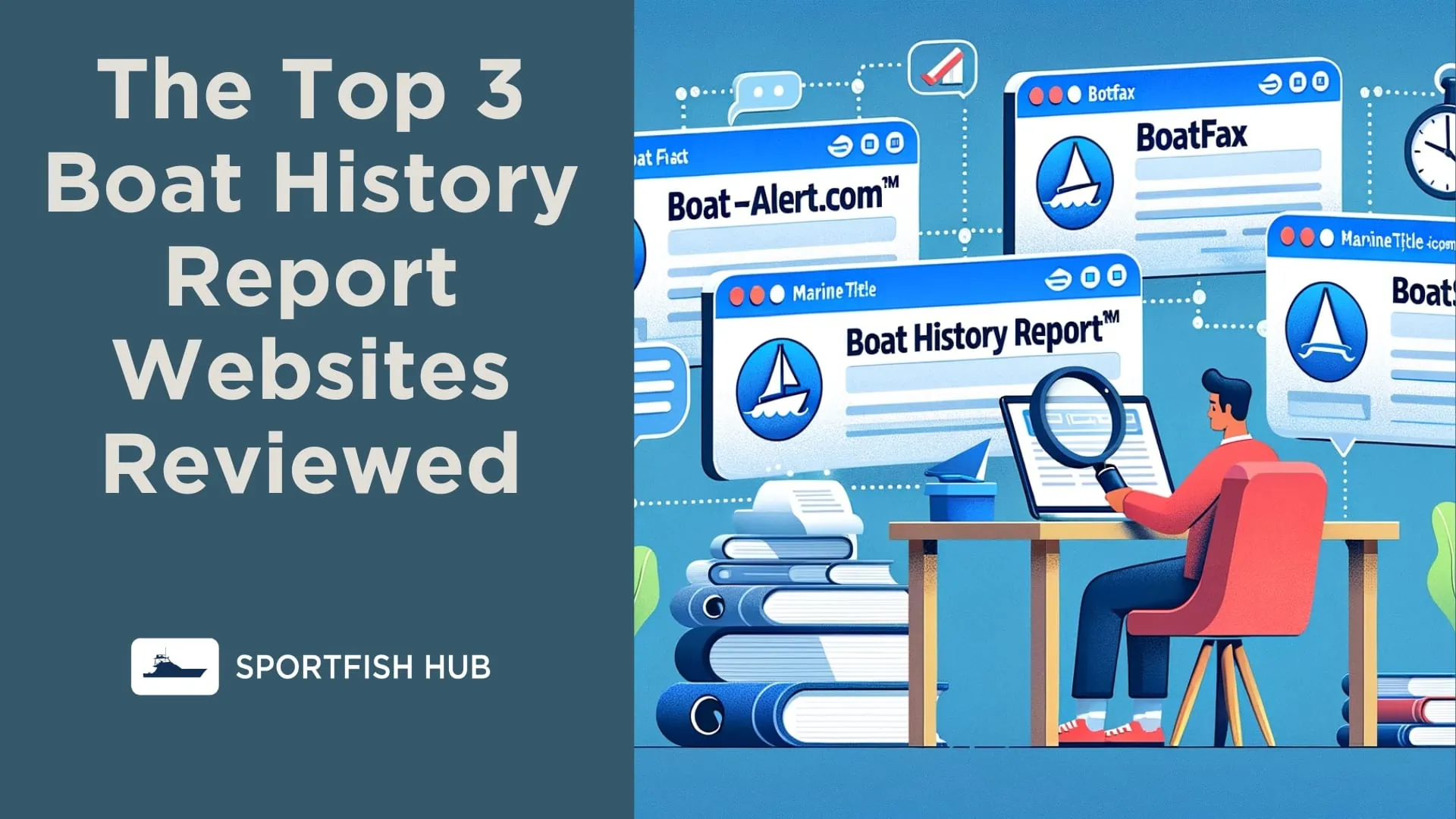If you’ve noticed milky oil coming from your boat’s lower unit, it means that you have water in your lower unit gear oil:
Something that needs to be addressed immediately!
In this article, we’ll provide you with an overview of the following:
- How to spot contaminated lower unit gear oil
- Why it happened
- And what to do about it
Table of Contents
- What Does Milky Lower Unit Oil Look Like
- Other Symptoms of Contaminated Lower Unit Oil
- How Is Water Getting Into Your Lower Unit
- Why is Milky Lower Unit Oil a Problem?
- Checking for Damage Caused by Moisture in the Oil
- Change The Lower Unit Oil Before Calling A Mechanic?
- How to Prevent Milky Lower Unit Oil In The Future
- Conclusion
What Does Milky Lower Unit Oil Look Like
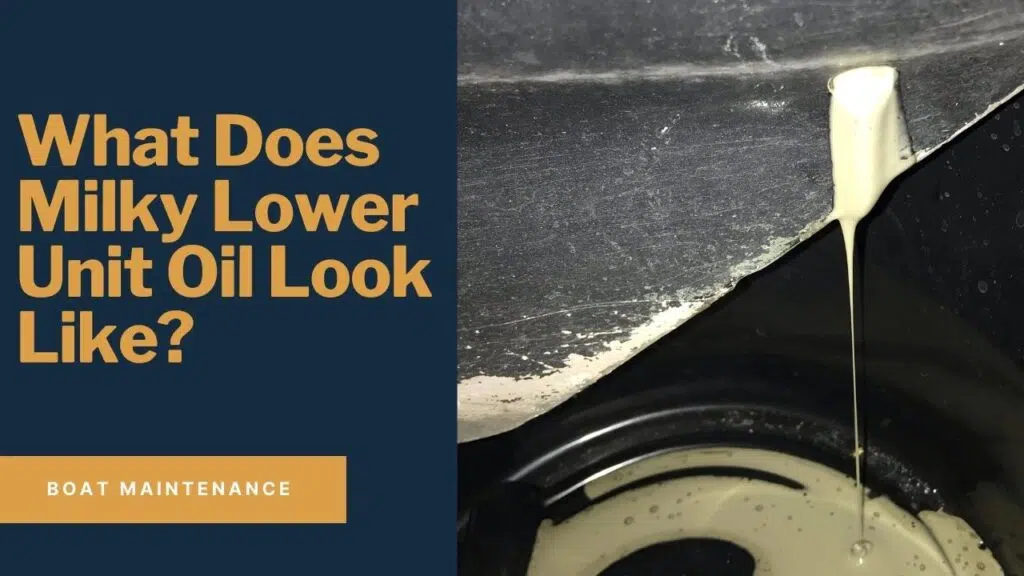
Milky oil in a boat engine’s lower unit will look cloudy and have an opaque appearance. You will also notice that the oil is no longer clear or transparent and that it actually has a thick milky, or frothy look to it. This look could be mild, or it could be extremely apparent, as in the photo above.
See Also: Can you fill the lower unit oil from the top?
Other Symptoms of Contaminated Lower Unit Oil
If you’re a novice to lower units, or boat motors in general, you might not necessarily know what lower unit oil is supposed to look like, much less whether it has a slight white coloration. Below we have listed four more ways to detect if your lower unit oil has been contaminated:
- Burnt Smell: If you notice a burnt smell coming from the lower unit, it could be a sign that the oil has become contaminated and needs to be replaced.
- Metal Shavings: If you notice metal shavings in the oil or on the oil plug, it could indicate that the lower unit is experiencing excessive wear and tear.
- Discolored Oil: If the oil is discolored in any way or has a strange texture, it could be a sign of contamination.
- Unusual Noise: If you notice any unusual noise or vibrations from the lower unit, it could indicate that the lower unit is experiencing problems related to contaminated oil.
You could also read: Water In Boat Engine Oil- What To Do
How Is Water Getting Into Your Lower Unit
If you have identified that the gear oil in your lower unit does indeed have water in it, that means water is getting in from somewhere, and you need to identify from where before you dod anything else.
There are several ways moisture/water can get into your lower unit oil, such as:
- Damaged seals
- Faulty gaskets
- Or a Damaged Housing
Tip: We advise that you consult a certified boat engine mechanic to diagnose how water is getting into your lower unit unless you are very experienced.
Why is Milky Lower Unit Oil a Problem?
When water enters the lower unit of a boat’s engine, it can cause several problems up to, and including the complete destruction of your lower unit. Below is a list of reasons why the water in your lower unit is a big problem:
- Increased friction and wear on the engine’s components: Water is not an effective lubricant, so it can cause increased friction and wear on the engine’s components. This can potentially lead to costly repairs or even engine failure.
- Corrosion and rust: Water can cause corrosion and rust to form on the engine’s components, which can further damage the engine.
- Reduced oil protection: When water enters the lower unit, it can displace the oil and reduce its ability to protect the engine’s components from wear and tear.
Checking for Damage Caused by Moisture in the Oil
If you notice milky lower unit oil in your boat engine, it’s important to have it inspected by a qualified mechanic as soon as possible because the entire unit really needs to be taken apart to know if there has been any damage.
Again, unless you are extremely experienced with lower units, call in a professional.
Change The Lower Unit Oil Before Calling A Mechanic?
If you are experienced with boats and, more importantly, lower units, and you believe your lower unit has not suffered any damage due to contaminated oil, you probably should try to change your lower unit oil first and replace the gaskets with OEM gaskets.
A bad gasket is the most likely reason and cheapest to repair if you can do it yourself.
Tip: Run about two loads worth of oil through so you get as much of the moisture and bad oil out as possible.
How to Prevent Milky Lower Unit Oil In The Future
Once you get your lower unit repaired and your oil changed, it’s good to know how to prevent water from getting back into your lower unit in the future. Here are some tips to help you:
- Regular Inspection: Inspect your boat’s lower unit regularly for any signs of water intrusion. Check the oil level and color to see if there are any changes.
- Replace Damaged Seals and Gaskets: If you notice any damaged seals or gaskets, replace them promptly to prevent water from entering the lower unit.
- Use Marine-Grade Lower Unit Oil: Use marine-grade lower unit oil that is designed to prevent water intrusion and resists corrosion. It’s also important to use the right type of oil and follow the manufacturer’s recommendations to avoid causing damage to your engine.
- Proper Storage: Store your boat in a dry place or use a boat cover to prevent moisture from getting into the engine.
- Avoid Excessive Idling: Excessive idling can cause the engine to run cooler and increase the likelihood of water condensation. It’s best to operate the boat at moderate to high speeds to keep the engine warm.
Conclusion
Milky lower unit oil can be a serious problem for your boat’s engine, but it’s not always the end of the world like it can be with an engine block. By understanding the causes of this issue and taking steps to prevent it, you can help keep your boat’s engine running smoothly for years to come.
If you notice milky lower unit oil in your boat’s engine, don’t hesitate to seek the help of a qualified mechanic to diagnose and repair the issue.

